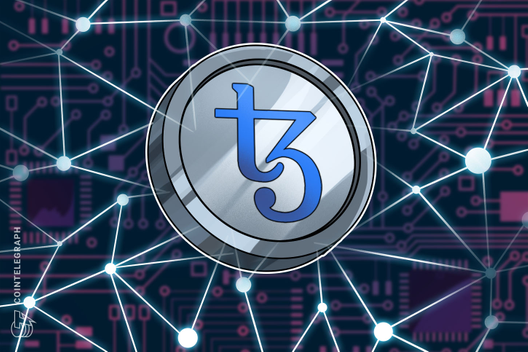Financial literacy will make the digital asset industry sustainable for the future
The cryptocurrency market is still in its infancy, and the overpowering sense of possibility is strong. The range of attitudes toward crypto is generally broad, but recent surveys shed light on certain inclinations one way or another. On one hand, we see beginners who venture into projects they fail to fully grasp, and on the other, we see aspirants to crypto investing who question their capability of getting involved.
At one end of the spectrum are the crypto dilettantes, where interestingly, understanding and confidence tend to be inversely correlated. Last year, Dutch bank ING interviewed around 10,500 people in Europe about cryptocurrencies. Of the 13% with the lowest crypto knowledge, 80% demonstrated high or medium confidence in its future. The cognitive bias these findings suggest makes for an uncomfortable journey toward crypto mass adoption. Still, I believe that interest, whether matched by sound understanding or not, is a step in the right direction.
An earlier survey that polled 1,000 online investors reveals that 44% of respondents were not trading crypto because they felt they lacked the proper education. More than half of the women surveyed, in particular, admitted that a shortfall in knowledge was the biggest barrier to entry into crypto investing, even though their interest in doing so matched that of the men. A separate poll conducted by Grayscale last year finds that U.S. investors would be more likely to invest in Bitcoin (BTC) if they were more knowledgeable about the asset, relative to stocks and bonds.
This limitation no longer goes unnoticed in the space. CoinMarketCap’s interim CEO, Carylyne Chan — who recently resigned — shared she was leaving the cryptocurrency data website with the hope that it will play a more prominent role in cryptocurrency education.
A lack of financial education
Falling into the FOMO or being frozen by the FUD is simply questioning your own judgment. Would either of these externally imposed calls to action or inaction ever go as viral if people were simply better informed?
The blame is not entirely on the individual, however. With reputable publications circulating articles on how you are the only one not striking it rich on BTC, there’s no wonder people are rushing to create a wallet. Yet the only acronym you should swear by is DYOR before you “dip your own resources” into “the next Bitcoin.” This whole narrative leads to ill-considered investments and propels the search for a quick crypto buck.
As a result of the low barriers to entry, inexperienced investors without a financial background venture into the crypto space in expectation of instant returns. It is a legit strategy to reap profits off of day trading, but it is unfair and short-sighted to make the entire industry about that. How do we expect traditional financiers and those coveted “billionaire’s approach” proponents to take digital assets seriously, given that for most crypto investors, long term is a week?
The perceived dichotomy between digital and traditional finance can be debunked by showing potential investors that basic financial principles are a stepping stone for successful crypto involvement and that a misunderstanding about an ordinary process in corporate finance can put all players involved at a loss.
One feature that occurs in both types of finance is dividends payments. This year, many companies globally tried to distribute dividends against a backdrop of bankruptcy filings and record unemployment in the markets. Those with a solid financial understanding would be aware that while the control over dividends policies falls entirely under the company distributing them, the share/token price is entirely market-driven, and crypto markets are notoriously more volatile. Dividend payments impact price: Typically, a rise is expected on the announcement date and a decline by a similar amount on the ex-dividend date.
Understanding these principles when expecting dividends from crypto companies means users will be more aware of their movements during these times, whether they’re rushing to buy more tokens, which can inadvertently cause the price to spike, or selling their tokens once the dividend amount is revealed.
Mainstream companies face the same trials as crypto companies in this regard. According to a report by Janus Henderson, a fund manager that tracks dividends globally, there have been cuts in dividends payouts in every region except North America. Mainstream financial companies failed to meet shareholders’ expectations, and the worry is that by the time these companies can afford to pay dividends — in, say, 2021 — they will have already lost the trust of their investors.
For blockchain companies with sustainable business models, the disconnect with finance concepts that do-it-yourself investors from the still-niche crypto community seem to display is discouraging to see. Being the sovereign of your assets comes with a set of responsibilities, and we are all learning together how to overcome the challenging parts of this industry for a stronger future.
Do digital assets make traditional finance nervous?
Apparently not when it comes to U.S. and European institutional investors. New research from Fidelity Digital Assets shows that 36% of the nearly 800 institutional investors polled are already invested in digital assets. A whopping near 80% of them find something appealing about the asset class, be it the innovative technology or the high potential upside. The legitimacy of crypto in traditional financial markets will be much easier to achieve if we see more and more examples of backers that are in it for the long run.
As well as seeing examples, believing in the future of a new technology does not always have to be met by a resounding yes or no. That’s precisely why you need education — to see the nuance, critically. The economic crisis stemming from the COVID-19 pandemic made everyone look to places other than just central-bank-regulated currencies, and a modern gold rush ensued, followed by very volatile months for Bitcoin.
Most traditional investors are already backing BTC and altcoins, but no one dumps all their billions of dollars into a single asset class. Michael Novogratz, veteran hedge fund manager turned crypto crusader, put it quite wisely for those of us who were confused:
“My sense is that Bitcoin way outperforms gold, but I would tell people to have a lot less Bitcoin than they have gold, just because of the volatility.”
Novogratz is advising digital asset novices to put no more than 2% of their funds into BTC, saying that holdings beyond that threshold should be reserved for professionals.
Other firms such as Fidelity have shown the seriousness with which they are taking Bitcoin as an investable asset, as well. Fidelity recently filed paperwork with the U.S. Securities and Exchange Commission informing the regulator of a new fund dedicated to Bitcoin, and it has been an example of a traditional fund that sees the potential of digital asset investment in the long run.
In the end, despite these limitations, it is up to the whole community — businesses and individual investors alike, but also regulators and legislators — to make sure we know enough to invest well and to invest safely.
This article does not contain investment advice or recommendations. Every investment and trading move involves risk, and readers should conduct their own research when making a decision.
The views, thoughts and opinions expressed here are the author’s alone and do not necessarily reflect or represent the views and opinions of Cointelegraph.
Antoni Trenchev is the co-founder and managing partner of Nexo, a provider of instant crypto credit lines. He studied finance law at King’s College London and Humboldt University of Berlin. As a member of Bulgaria’s parliament, Trehchev advocated for progressive legislation to enable blockchain solutions for a variety of e-government services, most notably e-voting and the storage of databases in a distributed ledger.








